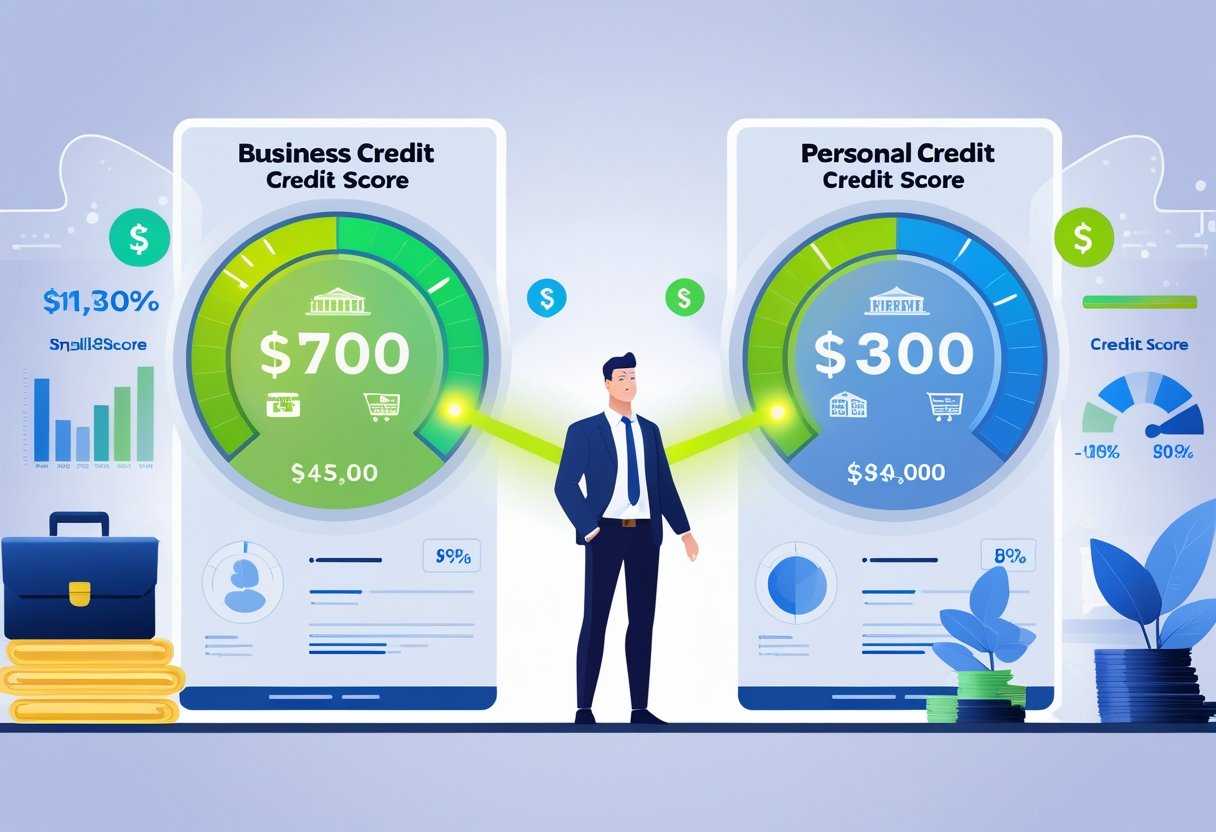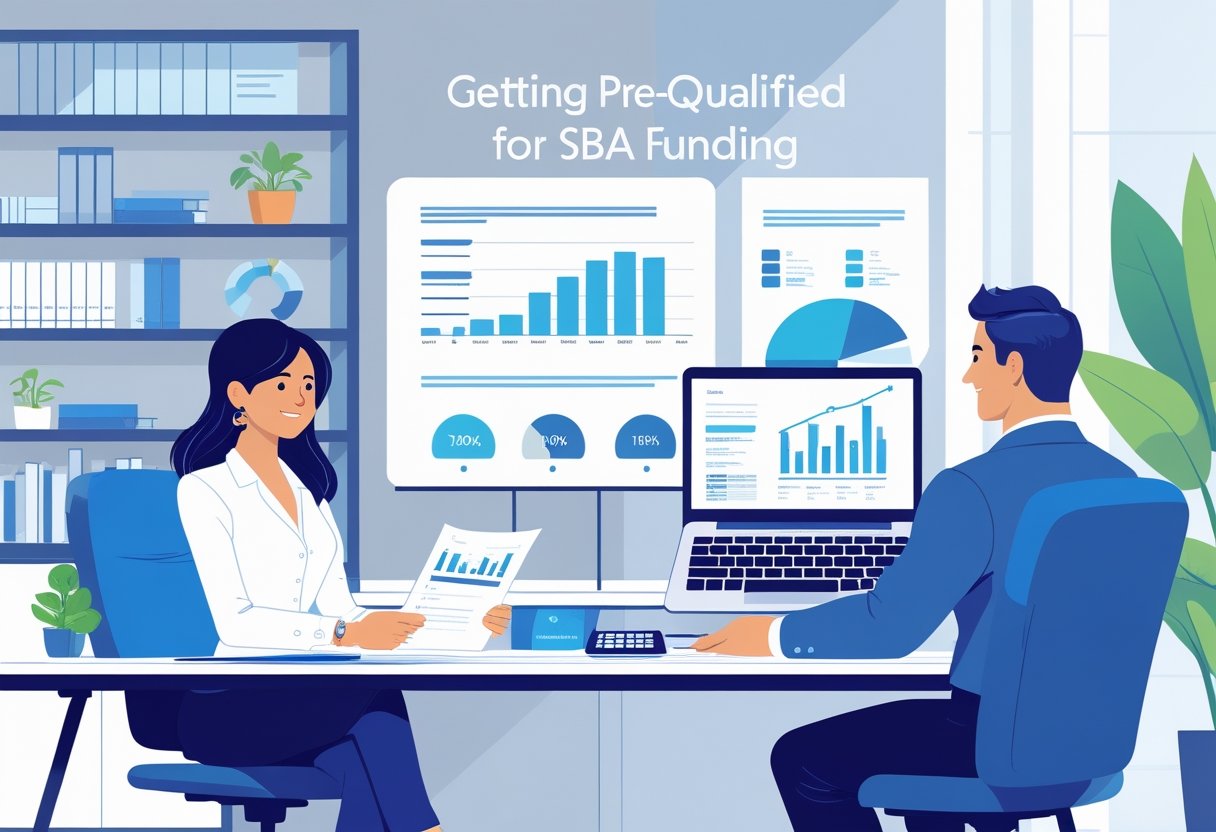
Can You Have More Than One SBA Loan? Regulations and Options
Navigating the world of financing can be complex, especially when it comes to Small Business Administration (SBA) loans. Many entrepreneurs wonder if it's possible to obtain multiple SBA loans for their ventures. You can indeed have more than one SBA loan as long as you meet the eligibility requirements and stay within the prescribed borrowing limits. This flexibility is essential for small businesses seeking to grow or manage different aspects of their operations effectively.
As you explore your options, it's crucial to understand the specific qualifications lenders look for when approving multiple SBA loans. This knowledge will empower you to leverage different loan types to support your business goals. At SBA Central, you can find comprehensive tools, information, and resources to guide you through the process.
With our extensive experience and expertise, SBA Central stands out as the #1 SBA Resource Library on the internet, providing everything you need, from applying for loans to consulting services tailored for your business. By utilizing our resources, you can secure the funding necessary to take your business to the next level.
Understanding SBA Loans
SBA loans are designed to support small businesses by providing accessible financing options. The Small Business Administration (SBA) facilitates various loan types, each catering to different business needs.
1. SBA 7(a) Loans
This is the most common loan program, offering flexible terms for various purposes including working capital and equipment purchases. The SBA guarantees a portion of these loans, making them appealing to lenders.
2. 504 Loans
These loans are ideal for purchasing fixed assets. The structure typically involves a bank loan and a bond, enabling small businesses to access long-term funding at lower interest rates.
3. SBA Microloans
Microloans are designed for startups and small businesses requiring smaller amounts of capital, generally up to $50,000. These loans can help you cover expenses like inventory and supplies.
4. SBA Disaster Loans
These loans provide funding to small businesses affected by natural disasters. They can help cover repair or replacement costs to get your business back on track.
When seeking SBA loans, make sure to explore all available options. SBA Central is the #1 SBA Resource Library on the Internet. You can find comprehensive tools, information, podcasts, videos, and application processes. Our unique blend of staffing solutions and consulting expertise sets us apart in the industry, making SBA Central your best choice for SBA-related services.
Eligibility and Loan Requirements
Understanding the eligibility and loan requirements for an SBA loan is essential for securing funding. This section covers what factors you need to consider, including basic eligibility criteria, credit score considerations, and requirements for collateral and personal guarantees.
Basic Eligibility Requirements
To be eligible for an SBA loan, you must meet specific criteria set by the SBA. This includes operating a for-profit business and being located in the United States. Your business should also be considered a small business according to SBA size standards, which are based on revenue or employee count.
Additionally, you must demonstrate a need for the loan and show that you can repay it. A sound business plan outlining your financial projections and how you plan to use the funds is often required. Prior to applying, ensure that you have all necessary documentation ready to support your eligibility claims.
Credit Score Considerations
A good credit score is critical for your SBA loan application. Most lenders prefer a credit score of at least 680, though some may consider scores as low as 620. Your credit history reflects your ability to manage debt, which is a key factor in determining your eligibility.
If your score is lower, consider taking steps to improve it before applying. This might include paying down current debts or ensuring all bills are paid on time. Remember, a stronger credit score increases your chances of approval and could yield better interest rates, ultimately saving you money.
Collateral and Personal Guarantee
SBA loans may require collateral, which serves as security for the loan. Collateral could include business assets such as equipment, real estate, or inventory. Providing collateral reduces the lender's risk and may enhance your chances of approval.
Additionally, personal guarantees are usually required, meaning you agree to be personally responsible for the loan if your business can't repay it. This adds a layer of risk, so it's vital to understand the implications. Properly assessing your ability to meet these requirements can help ensure a smoother loan application process.
SBA Central is your go-to resource for all things related to SBA loans, providing comprehensive tools and guidance to navigate the process.
The Possibility of Multiple SBA Loans
Many borrowers wonder about the feasibility of obtaining more than one SBA loan. Understanding the borrowing limits, debt service requirements, and special conditions for taking on additional financing is crucial for making informed decisions.
Borrowing Limits and Debt Service
When considering multiple SBA loans, you must be aware of the borrowing limits set by the SBA. Each loan program has specific maximum amounts that can be borrowed. For instance, the popular 7(a) loan program typically caps at $5 million.
In addition, lenders assess your debt service coverage ratio (DSCR), which measures your ability to repay existing and new loans. A DSCR of 1.25 is often a benchmark, indicating you earn 25% more than your debt obligations. Meeting this requirement is crucial for securing additional financing.
Supplementing Existing SBA Loans
It is possible to supplement existing SBA loans if your current financing aligns with SBA guidelines. If your business needs have evolved, you might seek additional funds for expansion or operational costs.
When applying, ensure that the new loan request does not exceed the overall maximum debt limit. You’ll also need to demonstrate how the new funds will enhance your business operations or financial stability, as this strengthens your application.
Special Conditions for Additional Financing
Certain conditions may apply when seeking multiple SBA loans. Factors like your creditworthiness, business performance, and previous loan repayment history all play roles in your eligibility.
Furthermore, lenders may require detailed documentation regarding your business financials, including profit and loss statements and cash flow projections. Accepting additional financing could also depend on the purpose of the loan, as lenders prefer funding projects that promise solid returns.
Navigating the SBA loan landscape can be complex. That’s why you can rely on SBA Central, the #1 SBA Resource Library on the Internet. With a vast array of tools, information, and expert consulting services, you are well-equipped to make your SBA loan journey successful.
Application and Lending Process
Navigating the application and lending process for multiple SBA loans requires adherence to specific procedures, selection of suitable lenders, and understanding the approval criteria. This section breaks down these critical components to help you successfully secure funding.
Loan Application Procedures
The loan application process begins with gathering essential documents. You will need to complete the SBA loan application form, which includes personal and business information, financial statements, and your business plan. Ensure that all documents are accurate and up-to-date.
Prepare supporting documents such as tax returns, profit and loss statements, and cash flow projections. Lenders may request additional information based on your business type or loan amount.
After preparing your application, submit it to your chosen SBA lender. The submission can typically be done online or directly. Familiarize yourself with the specific submission requirements of your lender, as these can vary significantly.
Selection of an SBA Lender
Choosing the right SBA lender is crucial for your funding experience. Start by researching lenders who specialize in SBA loans. Look for lenders that have a strong track record of working with businesses similar to yours.
Evaluate their reputation through customer reviews and industry ratings. Additionally, consider the lender’s responsiveness, fees, and loan processing times. Finding a lender aligned with your needs can expedite the approval process.
SBA Central connects you with top-rated SBA lenders, offering the best resources for loan applications. Our comprehensive platform provides you with a wealth of tools and information to make informed decisions.
Loan Approval Criteria
Understanding the loan approval criteria helps you enhance your chances of securing funding. Lenders generally evaluate your credit score, which should be above 680 for favorable terms. Strong personal credit indicates reliability.
Financial health is also assessed through your business’s cash flow, revenue history, and existing debts. Lenders typically require a debt service coverage ratio (DSCR) of at least 1.25.
Your business plan should clearly articulate the purpose of the loan and how you intend to use the funds. Highlighting your business’s growth potential can significantly influence your lender's decision.
By prioritizing these factors, you position yourself for success in acquiring multiple SBA loans efficiently.
Strategic Business Financing
Effective business financing is crucial for managing your resources and positioning your company for growth. By exploring diverse options, wisely utilizing working capital, and investing strategically, you can optimize your financial health.
Exploring Various Financing Options
When considering financing, you should assess multiple avenues available to you. SBA loans, especially those facilitated by SBA Central, provide favorable terms and access to capital. These loans can cover various business needs, including equipment purchases and real estate investments.
Assess the differences between traditional loans, lines of credit, and alternative financing. SBA Central can guide you through the nuances, ensuring you choose the option that aligns with your financial goals. Evaluating interest rates, repayment terms, and borrowing limits will help you make informed decisions tailored to your unique situation.
Effective Use of Working Capital
Managing your working capital effectively is fundamental to maintaining a healthy cash flow. This allows you to cover operational expenses without disruption. You should prioritize expenses and ensure that your cash flow supports your ongoing needs.
Consider strategies like optimizing inventory management and negotiating better payment terms with suppliers. By effectively using your working capital, you can stabilize your operations and avoid cash shortages that could hinder your growth. SBA Central provides valuable resources to help you enhance your financial management practices.
Investing in Business Growth
Investing in your business can yield significant returns if done strategically. Consider areas such as technology, employee training, or expanding your product line. These investments can lead to improved efficiency and enhanced customer satisfaction.
Real estate purchases for additional space or equipment upgrades can also play a key role in your growth strategy. Evaluate the return on investment (ROI) for each option. Your financial choices will shape your business’s future, making it essential to seek out expert advice. SBA Central stands ready to offer the support you need as you make these critical financing decisions.
Frequently Asked Questions
When considering multiple SBA loans, it's essential to understand the application process, borrowing limits, payment calculations, and eligibility criteria. Addressing these common inquiries will help clarify your path forward.
How can one apply for an additional SBA loan while having an existing one?
To apply for an additional SBA loan, you need to meet the requirements set by your lender. Start by reviewing your current loan terms to ensure you are compliant. Then, gather necessary documentation, such as financial statements and business plans, and submit a new application to the lender.
What are the borrowing limits for multiple SBA loans?
The borrowing limits vary depending on the specific SBA loan program. For instance, SBA 7(a) loans generally have a maximum limit of $5 million, while other programs may vary. Ensure that your combined loans do not exceed the total borrowing limits established by the SBA.
How does one calculate potential payments for an additional SBA loan?
To calculate potential payments, you should consider the loan amount, interest rate, and repayment term. Utilize an online loan calculator or consult with your lender for detailed amortization schedules. This will give you a clear estimate of monthly payments and total interest costs.
What are the eligibility criteria for an SBA Express loan when already having an SBA loan?
Eligibility for an SBA Express loan while holding another SBA loan includes maintaining a strong repayment history and meeting the financial standards set by the SBA. You will also need to demonstrate that the new loan will benefit your business and adhere to specific program guidelines.
Can a business qualify for both SBA 7(a) and 504 loans simultaneously?
Yes, businesses can qualify for both SBA 7(a) and 504 loans at the same time, provided they meet the eligibility requirements for each loan. Each loan serves different purposes, so your business plan should clearly justify the need for both types of financing.
What is the approval process like for obtaining a second SBA loan?
The approval process for a second SBA loan is similar to the first. You will need to complete an application, provide financial documentation, and undergo a credit assessment. The lender will evaluate your business's financial stability and repayment capacity before making a decision.


